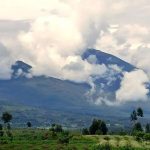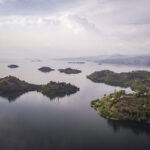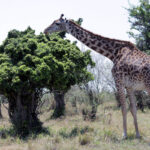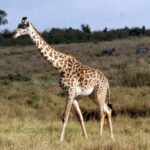If you’re planning a safari to Kenya, you’ll want to make sure you have everything you need packed and ready to go. This article is your guide to understanding your packing list for Kenya so that you don’t leave out things that are important for those you won’t need.
Kenya is a beautiful country full of diverse wildlife, vibrant culture, and stunning landscapes.
However, packing for a trip to a new country can be daunting, especially if it’s your first time traveling to Africa. To help make your packing experience easier, we’ve put together a list of essential items you’ll want to bring with you when traveling to Kenya.
Kenya safari packing list
Clothing
When it comes to packing clothes, it’s important to keep in mind that Kenya is a warm country with a tropical climate. Here are some clothing items you may want to pack when traveling to Kenya:
- Lightweight Tops: Pack lightweight, breathable tops made of cotton or linen to stay cool in the hot and humid climate. Short-sleeved or sleeveless tops are ideal for daytime wear, while long-sleeved tops can provide extra protection from the sun and insects.
- Trousers and Shorts: Pack lightweight trousers and shorts made of breathable fabrics like cotton or linen. Long trousers are recommended for evenings to protect from mosquito bites. Shorts are great for daytime wear and outdoor activities.
- Dresses and Skirts: Women can pack lightweight dresses and skirts for daytime wear or evening outings. Dresses and skirts made of breathable fabrics like cotton or linen are ideal for staying cool in the heat.
- Swimwear: Kenya has many beautiful beaches and most lodges have beautiful swimming pools, so pack your swimsuit if you plan to swim or relax by the water.
- Lightweight Jacket or Sweater: Although it’s warm during the day, evenings can be cool, especially in higher elevations. Pack a lightweight jacket or sweater to keep warm.
- Safari Clothes: If you’re going on a wildlife safari or visiting a national park, consider packing neutral-colored clothing, such as beige, khaki, or olive, to blend in with the environment. Avoid bright colors and prints that can attract insects and wildlife.
By packing these clothing items, you’ll be prepared for the weather and different activities you may encounter during your trip to Kenya.
Depending on the exact specifications of your visit to Kenya, you might need some items more than others. When your safari itinerary is finalized, our safari team can always offer advice that is more specific.
Comfortable walking shoes
Kenya has several national parks and game reserves that require a lot of walking and hiking to explore fully. Therefore, it is essential to pack comfortable walking shoes or a pair of sturdy hiking boots that can handle different terrains and protect your feet from sharp rocks and thorns.
Sandals are also a good option for casual wear or evening outings. Flip flops are useful for the beach or shared bathroom facilities.
Sunscreen, hat & glasses
The Kenyan sun can be very intense especially during the dry season months – which also happen to be very ideal for wildlife viewing. You are advised to carry sunscreen to protect your skin from the harsh sun. While you can get sunscreen in Kenya, this is not very easy in the remote areas where the national parks are found – so it is better to be prepared ahead of time.
Besides the sunscreen, you should also bring a hat and sunglasses to give the extra protection for your face and eyes.
Insect Repellent
Mosquitoes and other insects that might bite or carry disease thrive well in Kenya and it is important to avoid their antics. Mosquitoes are especially bad because not even the toughest person can enjoy a safari with Malaria. To make sure that you are always fit and healthy, you should have an insect repellant to keep them away.
Lodges and hotels do their best but extra caution is better than risk.
Mosquitoes are especially active in the evenings, so you can extend the caution by dressing in long-sleeved shirts/tops and long pants to keep them away.
Regular Medication
For the people who have regular prescription medication, you should consult your doctor about your upcoming trip and get their professional advice on what to do or not do while away. Depending on the duration of your safari, you can also think about getting a prescription that is going to last you long enough.
If there are any questions from your doctors, be sure to reach out so that we can provide any assistance we can. Personal items such as pain relievers, and bandages are also good things to have on hand.
Water Bottle and Water Purification Tablets
While bottled water is widely available in Kenya, it’s always a good idea to bring your own reusable water bottle and water purification tablets. This will help you save money and reduce plastic waste.
Water purification tablets are also handy in case you’re unsure about the safety of the water in a particular area.
Electrical Adapter and charger
Kenya uses Type G electrical outlets, which are different from those used in many other countries. If you plan on using electronic devices such as a phone charger or camera, make sure you bring an adapter that’s compatible with Type G outlets.
If you’re traveling to multiple countries, consider bringing a universal adapter that can work in multiple countries. This way, you won’t need to buy a new adapter for each country you visit.
Consider packing a power bank to charge your devices while on the go. This is especially useful when traveling to remote areas without easy access to electrical outlets.
Camera and binoculars
Whether you are into cameras or not, your packing list for Kenya should have a camera and a pair of binoculars. Kenya is known for its stunning wildlife, so make sure to bring a camera and binoculars to capture the amazing sights.
A good camera can help you capture the stunning landscapes, vibrant culture, and diverse wildlife of Kenya. Consider bringing a camera with a zoom lens to capture wildlife from a distance. A tripod can also be helpful for stable shots.
Kenya is known for its wildlife and birdwatching opportunities, and a pair of binoculars can help you spot and identify animals and birds from a distance.
Make sure to pack protective gear for your camera and binoculars, such as a camera bag, lens cleaning cloth, and lens caps. This will help keep your equipment safe from dust, dirt, and scratches.
Passport and Visa
Before you can even think about packing, you’ll need to make sure you have a valid passport and a visa to enter Kenya. You should also make sure that your passport has at least six months left before it expires.
While obtaining a visa is pretty easy and straightforward, you should have every requirement already prepared ahead of time. Here is our guide about Kenya visa requirements for tourists.
Backpack or daypack
A daypack can be a useful item to carry when traveling in Kenya. A daypack will allow you to carry your essentials, such as water, snacks, and a camera, during your adventures in Kenya.
Features like multiple compartments and side pockets can help keep your gear organized, and easily accessible and keep your valuables close to you and out of sight.
Light rain jacket
Kenya has two rainy seasons, from March to May and from October to December. Therefore, it is essential to pack a light rain jacket or poncho to protect yourself from unexpected rain showers.
Consider a rain jacket that is lightweight and packable, so it can be easily stowed in your daypack when not in use.
Cash and Credit Cards
While some places in Kenya accept credit cards, it’s important to have some cash on hand for expenses that may not accept credit or debit cards. Estimate your expenses beforehand to determine how much cash to bring.
You can exchange your currency for Kenyan shillings at banks or exchange bureaus, or withdraw money from ATMs. Carry small bills and coins for small purchases. Keep your cash and valuables secure in a money belt or secure bag.
Conclusion
Your safari packing list for Kenya doesn’t have to be overwhelming. There are several essential items to pack when traveling to Kenya. These include documents like passports and visas, appropriate clothing for the climate and activities, sun protection like hats and sunscreen, an electrical adapter, cash, a camera and binoculars, a daypack, and a rain jacket.
By packing these items, you’ll be prepared for the varying conditions and activities that you’ll encounter while traveling in Kenya. Remember to also pack any personal medication or equipment, and check with your doctor about any necessary vaccinations or medications for travel to Kenya.
By keeping these essential items in mind, you’ll be well-prepared to enjoy all that this beautiful country has to offer. Don’t forget to also pack a sense of adventure and an open mind!
Related articles
- Is Kenya safe for tourists
- Kenya visa requirements for tourists
- Best time to visit Kenya for tourism




















